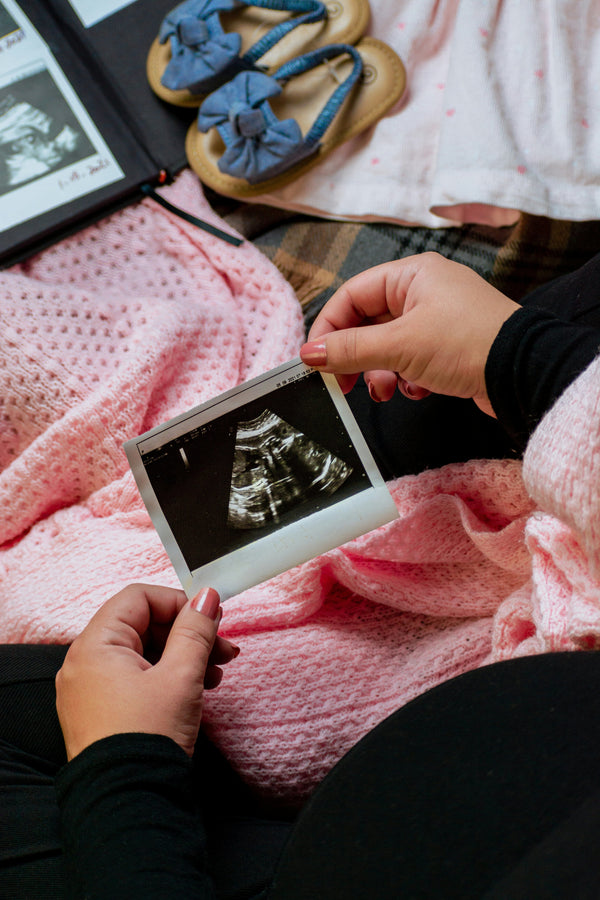Article
Mounjaro and Pregnancy: Is It Safe?
Posted on
Mounjaro is an injectable medication which has become increasingly popular for managing type 2 diabetes and supporting weight loss. With all the attention it's getting, many people are asking the same question: is Mounjaro safe to take during pregnancy?
Whether you're already pregnant, thinking about trying, or simply curious about how this medication fits into the bigger picture of reproductive health, this article aims to give you a clear and supportive overview of what we currently know.
What is Mounjaro?
Mounjaro, the brand name for tirzepatide, is a once-weekly injection used to help manage blood sugar levels in people with type 2 diabetes. It also has strong appetite-suppressing effects, which has led to its growing use for weight loss.
It works by mimicking two naturally occurring hormones (GLP-1 and GIP) that help regulate appetite, digestion and insulin response. Many people have found it effective, particularly when other treatments have not worked. However, when it comes to pregnancy, the conversation becomes more complex.
What do we know about Mounjaro and pregnancy?
The short answer is: not much. And that is part of the problem.
There have been no high-quality clinical trials involving pregnant women taking Mounjaro. However, studies in animals such as rats and rabbits have shown potentially harmful effects on developing foetuses. These include reduced foetal growth, abnormalities in bone development, and increased rates of miscarriage. Although results from animal studies do not always apply directly to humans, they are enough to raise concern.
As a result, healthcare agencies including the NHS, NICE, the MHRA, and international bodies such as the FDA and Australia’s TGA all advise that tirzepatide should not be taken during pregnancy or while trying to conceive.
What if you're trying to conceive?
If you're planning a pregnancy, it is currently recommended that you stop taking Mounjaro at least one month before trying to conceive. Some guidance is even more cautious, suggesting a two-month window.
This is because tirzepatide has a long half-life, meaning it stays in the body for a while even after the last injection. Giving your body time to clear the medication reduces the potential risk to a developing baby.
Can Mounjaro affect contraception?
Interestingly, yes. Tirzepatide slows down digestion, which can reduce how well oral contraceptives (such as the pill) are absorbed, especially when you first start taking it or change your dose.
For this reason, it is recommended that women using the pill consider an alternative form of contraception when starting Mounjaro. This might include a non-oral method such as an implant, coil, patch or barrier method like condoms.
If you're unsure which method is best for you, your GP or family planning clinic can offer personalised advice.
What if you become pregnant while taking Mounjaro?
If you do become pregnant while on Mounjaro, the first step is not to panic.
You should stop taking the medication and speak to your healthcare provider as soon as possible. Although the risks are not fully known, it is likely you will be monitored more closely during your pregnancy. There have already been cases of healthy babies being born after exposure to similar medications, but data is still limited.
It is also worth remembering that uncontrolled diabetes or obesity during pregnancy carries its own set of risks. So while stopping Mounjaro is advised, it is also important to manage your health with safe alternatives. Your doctor may suggest other medications or dietary strategies that are known to be safe in pregnancy.
Should you avoid Mounjaro altogether if you might want children?
If you are actively trying to conceive, or even just thinking about it in the near future, Mounjaro may not be the right option for you at the moment.
For others, where pregnancy is not a current consideration, Mounjaro may still be appropriate—provided that contraception is reliable and tailored to your needs. The key is to have an open and ongoing conversation with your healthcare team about your plans and priorities.
Summary: What you need to know
If you are planning to become pregnant, it is advised that you stop taking Mounjaro at least one month beforehand to allow the medication to fully leave your system. If you are currently using oral contraception, such as the pill, you may want to consider switching to a non-oral method like an IUD, implant, patch, or barrier method, as Mounjaro can reduce the effectiveness of oral contraceptives.
If you accidentally become pregnant while taking Mounjaro, you should stop the medication immediately and contact your GP or healthcare provider for guidance. For those who are already pregnant, Mounjaro is not recommended and should not be started or continued during pregnancy.
We all want to make choices that support our health, especially when pregnancy is involved. While Mounjaro has shown promise in managing diabetes and weight, it is currently not considered safe for use during pregnancy due to the limited human data and concerns from animal studies.
If you are on Mounjaro and pregnancy is even a possibility, it is worth having a detailed conversation with your GP, diabetes specialist or consultant about your next steps. There are always alternatives available, and the most important thing is to feel informed and supported in your decisions.
Further reading
-

Is this normal in trimester 2?
Pregnancy can feel like a constant swirl of questions and new experiences. The second trimester is often called the “honeymoon... -

Myths About Early Pregnancy Safety
Trigger Warning: This post discusses early pregnancy, including topics such as miscarriage and common symptoms. The first twelve weeks of...


